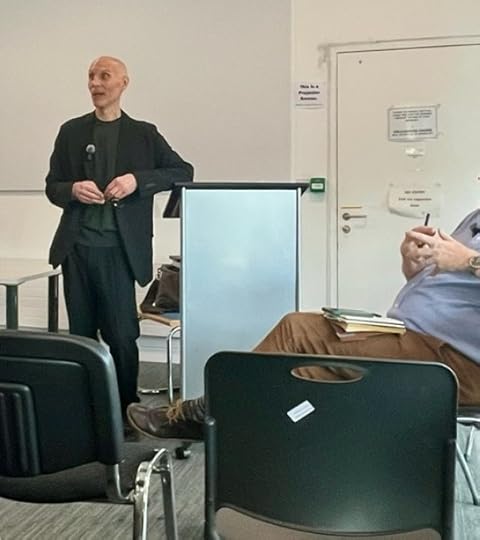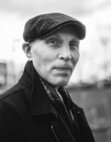learning psychoanalysis the hard way

...an excerpt from a presentation to the first year psychoanalytic classes at Trinity College Dublin...
Long before psychoanalysis I could accept maybe a handful of people whom I allowed to teach me. My most demanding teacher also saw the trip-wires around any humiliation set off by my own not-knowing. Far from soft, he was blunt and precise. Over 30 years he has become closer to me than blood, but when I was still a teenager, I saw how he impressed and/or terrified most people with whom he interacted. In our exchanges I never felt mortified by what I didn’t know, precisely because of his status in the world and in my mind. As he was a lawyer with extensive knowledge of criminal pathologies, I learned what a piquerist was long before I learned what a psychoanalyst was.
Outside of that relationship I protected myself from that not-knowing to avoid any dependence upon the other. In his book, On Balance, Adam Phillips wrote of the inescapable helplessness of living that demands our involvement with others, and cites Freud’s notice that we can begrudge our own helplessness, calling up or recalling the wish for a protective object, provoked by a terror of being unloved:
The catastrophe of being a human being is that we are irredeemably helpless creatures. And that means, helpless to do anything about our helplessness. We are essentially helpless, and that is the very thing that makes our lives impossible. It is the mark of our own resistance to our helplessness that we deem the ineluctable to be catastrophic; as though anything we don’t make for ourselves is bad for us.
Philips also notes, more importantly, that recognizing our helplessness is a prerequisite for the possibility of a satisfaction in life, one that I tried to foreclose, protectively avoiding the shame of not-knowing. Defending myself from that terror of the loss of love and that catastrophic dependence, I barred my own formal education for years to avoid acknowledging that basic helplessness.
To want to understand those childhood glimpses of the adult world – violence in war or in the front yard, parents’ whispering, prayers from the old country only the old women knew, or jokes the men told drinking beer – and to not have them explained when I was a child left me desperately wanting to know. And left me reluctant to trust those who might have been able to tell me precisely because they would not. Ashamed to have this want denied, not knowing becomes humiliating. I would teach myself, then.
If I was supposed to know something, then it did not have to be explained to me, allowing the other to never have to risk exposing their own selves by putting these expectations into words. If there are no secrets, then everything is a potential secret and nothing can be said. Speaking of them becomes proof of not-knowing. And not speaking becomes knowing. The child who suspects the house is haunted is certain there is something others are not speaking of, whether they know it or not is the mystery.
Those hauntings, placeholders for the intergenerational and interpersonal family secrets, cannot be discussed or understood. If they are spoken of, the unknown, the gap between people, the gaps between what we each know, is illuminated. Unrecognized, these “ghosts in the nursery” follow us, marking off the spaces we cannot think of and we cannot think in.
*



